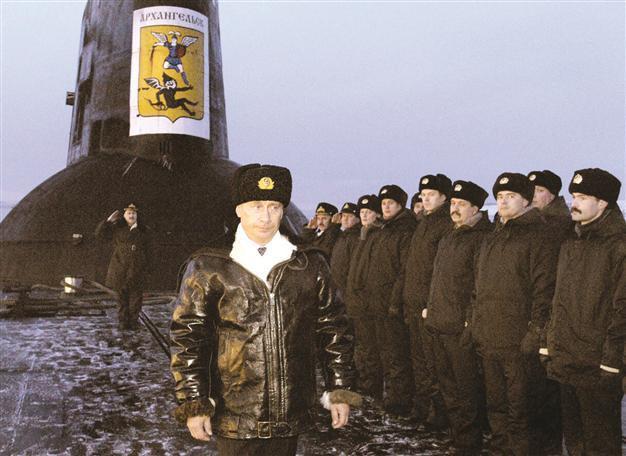Russia to host talks on missile defense
MOSCOW / WASHINGTON

Putin inspects the heavy missile-carrying submarine Severomorsk in this photo. AFP photo
The Russian Defense Ministry will hold an international conference on missile defense on May 3-4, Defense Minister Anatoly Serdyukov said yesterday. The announcement came after the Obama administration disclosed that it is considering sharing some classified U.S. data to allay Russian concerns about a controversial antimissile shield.“We intend to continue working with all partners to explain our position [on missile defense], and we plan to engage independent experts,” Russian news agency Ria Novosti quoted Serdyukov as saying.
“To this end, the Russian Defense Ministry is planning to hold an international conference on missile defense in Moscow in May,” Serdyukov said. The goal of the conference is to give military experts from many countries and international organizations the opportunity to openly discuss a wide range of issues concerning the deployment of missile defense systems around the world. The conference is scheduled a few weeks ahead of the NATO summit in Chicago on May 20-21. Moscow has not indicated whether the Russian president will attend the summit. NATO members agreed to create a missile shield over Europe to protect it against ballistic missiles launched by so-called rogue states, such as Iran and North Korea, at a summit in Lisbon, Portugal, in 2010.
No progress in stopping Russian opposition
Meanwhile, the Obama administration disclosed that it is considering sharing some classified U.S. data as part of an effort to allay Russian concerns about the antimissile shield.
The administration is continuing negotiations begun under former President George W. Bush on a defense technical cooperation agreement with Moscow that could include limited classified data, Deputy Assistant Secretary of Defense Brad Roberts told a House of Representatives’ Armed Services subcommittee, Reuters reported. He gave no details on the sort of data that might be shared under such an agreement.
“We’re making no progress” in persuading Russia to drop its opposition, despite the willingness to consider sharing certain sensitive data, he added.
















